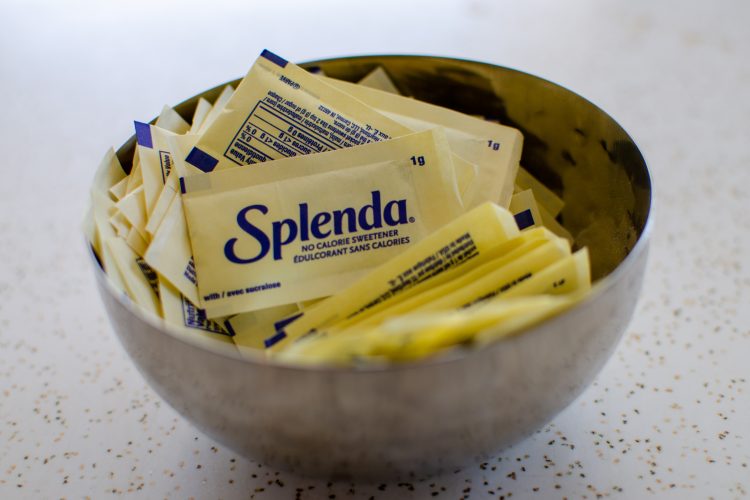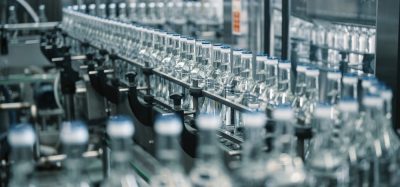Chemical in sweetener “genotoxic”, says research
Posted: 5 June 2023 | Grace Galler | No comments yet
According to latest research, a chemical formed when we digest sucralose, a widely used sweetener, is “genotoxic”.


After analysing a popular sweetener, researchers have claimed that the chemical formed when we digest sucralose is “genotoxic”, meaning it breaks up DNA.
Sucralose is sold under the trade name Splenda. According to previous work by the same research team, several fat-soluble compounds are produced in the gut after sucralose ingestion, one of which is sucralose-6-acetate.
“Our new work establishes that sucralose-6-acetate is genotoxic,” stated Susan Schiffman, Corresponding Author of the study and an Adjunct Professor in the Joint Department of Biomedical Engineering at North Carolina State University and the University of North Carolina at Chapel Hill.
“We also found that trace amounts of sucralose-6-acetate can be found in off-the-shelf sucralose, even before it is consumed and metabolised,” claimed Schiffman.
https://podcasters.spotify.com/pod/show/food-to-go/episodes/Episode-40-Food-Waste—time-to-face-reality-e24ljut/a-a9t427i
Putting the findings into context, Schiffman explained that the European Food Safety Authority has a threshold of toxicological concern for all genotoxic substances of 0.15 micrograms per person per day. However, Schiffman stated that results of the study found the trace amounts of sucralose-6-acetate in a single, daily sucralose-sweetened drink exceed that threshold.
“And that’s not even accounting for the amount of sucralose-6-acetate produced as metabolites after people consume sucralose,” continued Schiffman.
To carry out the study, the researchers conducted a series of in vitro experiments exposing human blood cells to sucralose-6-acetate and monitoring for markers of genotoxicity.
“In short, we found that sucralose-6-acetate is genotoxic, and that it effectively broke up DNA in cells that were exposed to the chemical,” said Schiffman.
In addition, the researchers also conducted in vitro tests that exposed human gut tissues to sucralose-6-acetate.
“When we exposed sucralose and sucralose-6-acetate to gut epithelial tissues (the tissue that lines your gut wall) we found that both chemicals cause ‘leaky gut.’ Basically, they make the wall of the gut more permeable. The chemicals damage the ‘tight junctions,’ or interfaces, where cells in the gut wall connect to each other.”
Artificial sweetener linked to higher rates of heart attack and stroke
Schiffman described a leaky gut as being “problematic”, stating that “what would normally be flushed out of the body in faeces is instead leaking out of the gut and being absorbed into the bloodstream.”
When looking into the genetic activity of the gut cells to see how they responded to the presence of sucralose-6-acetate, the researchers claimed that gut cells exposed to sucralose-6-acetate had “increased activity in genes related to oxidative stress, inflammation and carcinogenicity”.
“This work raises a host of concerns about the potential health effects associated with sucralose and its metabolites. It’s time to revisit the safety and regulatory status of sucralose, because the evidence is mounting that it carries significant risks,” said Schiffman.
“If nothing else, I encourage people to avoid products containing sucralose. It’s something you should not be eating.”
In response to the study and its subsequent media coverage, Heartland Food Products, the maker of Splenda, alleges: “Splenda products were not tested or used in the research recently published in the Journal of Toxicology and Environmental Health, therefore any news reports linking study results with the Splenda Brand are inaccurate, false and misleading.”
Heartland Food Products went on to say that consumers have been “falsely lead” to believe that sucralose-6-acetate (SA6) is the same as sucralose. “It is not – SA6 is not synonymous with sucralose,” it said.
“Sucralose is a popular, zero calorie sweetener that has been used by millions of people for over 25 years to sweeten foods and beverages. It is also globally approved by food safety organisations including the US Food & Drug Administration (FDA) and European Food Safety Authority (EFSA),” the maker of Splenda continued.
Heartland Food Products claimed that, “as the leading brand in low- and no-calorie sweeteners, we rigorously and routinely test and monitor for any impurities in our products, including SA6.”
“We can confirm that SA6 is not present in Splenda Brand sucralose down to the lowest detection limit possible, which is .001 percent sensitivity level,” it stated.
“As part of our commitment to fight the global epidemic of obesity, diabetes, and prediabetes, which unfortunately impacts over 50 percent of the US population, Splenda continues to develop and market zero-calorie sweeteners and products to help consumers reduce and avoid added sugars in their diet,” concluded Heartland Food Products in its statement.
Related topics
Food Safety, Health & Nutrition, Quality analysis & quality control (QA/QC), Research & development, The consumer
Related organisations
European Food Safety Authority (EFSA), Food & Drug Administration (FDA), Heartland Food Products, North Carolina State University, University of North Carolina at Chapel Hill









